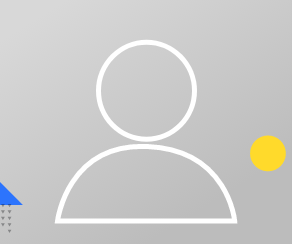Sue Cardinal, M.L.S.

Sue Cardinal
Chemistry Librarian
University of Rochester
B.S., Chemistry, University of Iowa
M.L.S., Syracuse University
Susan Cardinal earned her B.S. in Chemistry 1989. She worked for several years for a small startup company involved in de-chlorinating water and soil, followed by employment at an environmental laboratory, where she worked as supervisor of the firm’s organic extractions lab. She found the work interesting, but also recognized that the work didn’t align with her skill set.
Cardinal began thinking about making a change in her career, and worked with career counselors and took various assessments such as the Myers Briggs Type Indicator and others. She also found helpful advice in the book, What Color Is Your Parachute? The pivotal moment came when she started thinking about how much she had always enjoyed libraries, and began considering a career in library science.
To get a better sense of what the career change might mean, Cardinal began volunteering at a local public library; soon afterward, she started taking classes in library science. She also took some part-time jobs in libraries, which prepared her for a full-time position as a circulation supervisor. After she earned her M.L.S., Cardinal found the position at the University of Rochester, applied for it and was hired. As she was learning on the job, she became involved in ACS, and found a mentor who was willing to give her career suggestions and advice.
Libraries and information science may appear boring from the outside, but they are really exciting and interesting fields because technology and software is evolving to enable convenient, broad access to information.
How you found your first chemistry-related job:
As I was wrapping up my B.S. in Chemistry, the University of Iowa brought in potential employers and I interviewed with a few.
Primary job responsibilities:
I meet the information needs of students, staff and faculty of the University of Rochester, especially those in the Chemistry Department.
Typical day on the job:
- Communicate via emails (30%)
- Meet with colleagues (20%)
- Do research about libraries and chemistry (20%)
- Read articles (10%)
- Supervise two staff on library related projects (10%)
- Make decisions about what books to buy or which journals to buy or where to locate print items (10%)
Work environment:
I spend a few hours in my office each day. I meet with others in conference rooms for a few hours, and I meet people in offices or in the library. I usually have my iPhone with me. Sometimes I work on a laptop or on my office computer. I work closely with my library staff colleagues and with chemistry staff, faculty and students.
Work schedule:
35–40 hours is typical. I may work more if I'm preparing a presentation or training session. The intensity of our pace varies with the flow of undergraduate classes and with library projects, i.e. it is more relaxed in December and more hectic in September.
Travel schedule:
I am not required to travel.
Tools you can’t live without:
SciFinder, Reaxys, Web of Science/ Science Citation Index, Outlook, Word, Excel, PowerPoint, Library Catalog, Web browsers, and my iPad and iPhone.
What you like most about your job:
No two days are the same. I meet with different people with interesting questions. One of the most enjoyable moments for me is to help someone connect with the hard-to-find information they’ve been looking for. I get a lot of satisfaction when I see their excitement and sense of relief.
Libraries and information science may appear boring from the outside, but they are really exciting and interesting fields because technology and software is evolving to enable convenient, broad access to information. And people have so many varied passions that it is a joy to further their research.
When I first started taking classes in library science, the World Wide Web was just beginning to become popular. As I earned my masters and worked at the U of R, the Web has transformed itself — and it’s also transformed the world of libraries. Because people can find the answers to many questions on the Web, they tend not to come to the library for answers to fairly straightforward questions or to look up basic concepts. Instead, they need to find very specific and hard-to-locate information — and I love the challenge of helping them do so.
Best productivity trick:
Read my email in the elevator. Work on focused projects later in the day when I won't be interrupted as much.
Best career advice you’ve received:
Know yourself and your preferences, and find a job that matches.
Skills or talents that make you a good fit for your job:
I love to talk with people and go on “treasure hunts” for information. Often I’m far less interested in what the particular answer is, than I am in simply finding it. Choosing which tools to use, which route or process to follow, and helping to find it as fast as we can — those are some of the challenges of being a librarian.
Essential habit you wish you’d started earlier:
Reading my email and reviewing my calendar via my iPhone. I can use five minutes here and there to keep up to date.
Favorite ACS resource:
SciFinder is my go-to resource for finding all sorts of chemical information. No other database has the same depth and currency. The support people are excellent.
How you've benefited from being an ACS member:
At first, I read C&EN to get to know what was happening in the field. Over time, I've gotten more involved in the Chemical Information Division committees and conference activities, and I’ve met so many wonderful colleagues from all over the world. They understand my work better than anyone else, and are so supportive.

